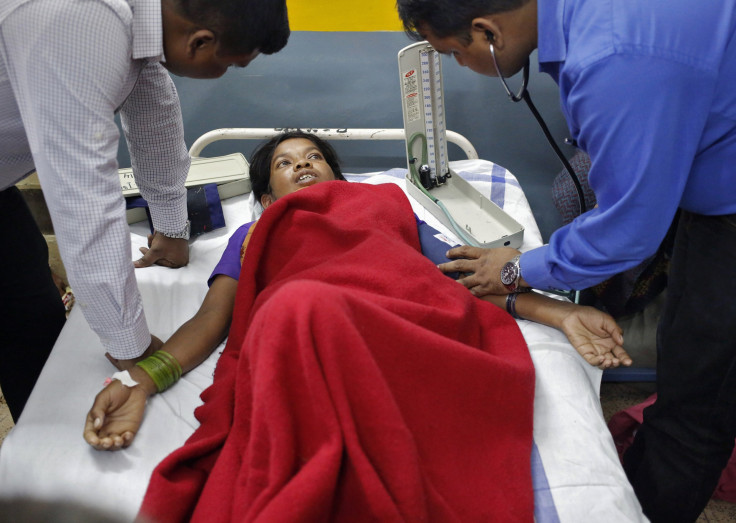Modi Government Wants To Make Health Care A Fundamental Right, Days After Slashing Health Budget

India's government, in its new draft policy on national health released on Wednesday, said that it would consider making health care a fundamental right and ensure that its denial is punishable by law. In August 2009, India had made education a fundamental right.
The move to make health care a fundamental right is significant, especially as it comes only days after the Narendra Modi-led government slashed its health budget by a fifth, primarily because the administration is finding it hard to contain its rising fiscal deficit. Government data, also released on Wednesday, showed that between April and November this year, its fiscal deficit stood at 5.25 trillion rupees ($83 billion), which is 99 percent of the full-year target, indicating that the government will most likely overshoot it by the end of the year in March.
India spends just 1.3 percent of its Gross Domestic Product (GDP) on public health care, and even including expenditure on private health care, the figure stands at 4.3 percent. Comparative data show that in terms of health care expenditure as a percentage of GDP, India significantly lags behind Brazil, Russia, China and South Africa, countries that are typically lumped together in the so-called BRICS bloc.
Separately, on Wednesday, the government also announced the appointment of managing directors (MDs) and chief executive officers (CEOs) for four state-owned banks -- Indian Overseas Bank, Oriental Bank of Commerce, United Bank of India and Vijaya Bank.
And, in what could perhaps be the first step toward reforming the Indian banking sector, which is burdened with bad loans, the government split the positions of chairman and MD, which, in case of state-owned banks, had traditionally been held by the same person. Indian banks are laden with non-performing assets worth 2.4 trillion rupees ($38 billion), of which about 90 percent are reportedly on the books of state-owned banks.
© Copyright IBTimes 2024. All rights reserved.











